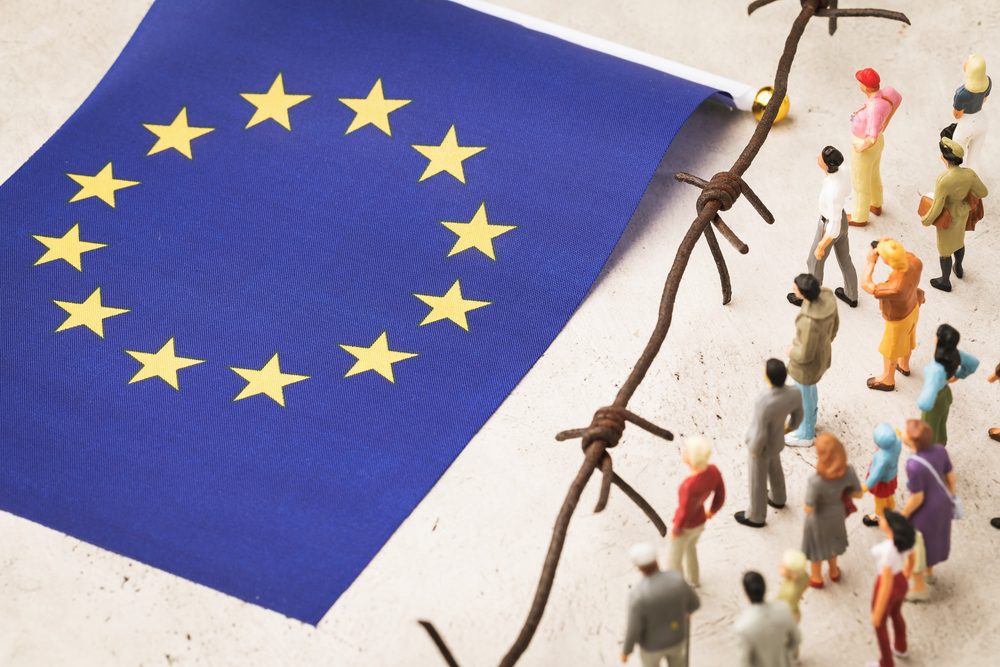
One would think, with the heightened debates raging in the EU over how to manage the migrant crisis, that the issue is bound to remain divisive and unresolved. New information, however, attests that member states have been working on a resolution for some time now, even if they have opted to not advertise it.
Last year, European interior ministers agreed on establishing a new deportation mechanism with the cooperation of West Balkan countries, which would serve as a migration “buffer zone” within the upcoming border management strategy—a joint statement obtained by a freedom of information request revealed on Monday, March 13th.
The statement, obtained and published by the human rights watchdogs Statewatch and the Heinrich Böll Stiftung, was signed in February 2022 by ministers from the West Balkan states, more than half of the EU members (including Austria, Belgium, Germany, Denmark, France, Greece, Lithuania and all of Central Europe), as well as Switzerland.
The declaration was adopted at the second conference of the Joint Coordination Platform (JCP) in Vienna, which was created by the initiative of Austria in 2020 in an effort to find ways to effectively combat illegal mass migration by cooperating with non-EU countries. Meeting again in early 2022, JCP members focused mainly on devising a new EU deportation scheme, “in particular from the Western Balkans towards third countries,” the final document reads.
European interior ministers signed a secret joint statement in February last year that committed EU and Schengen states to increase financial and material support for deportations from the Balkans,https://t.co/hgAEy4SYnj
— Statewatch (@StatewatchEU) March 14, 2023
2/10 pic.twitter.com/IWTJ7M1WNM
The plan is set to be built on two pillars, according to the statement. One is the creation of the so-called “Regional Return Mechanism,” which “promotes voluntary return and supports the implementation of non-voluntary return of migrants who are not in need of international protection or do not have the right to stay.” The second is the establishment of flexible “Return Partnerships” between the West Balkan and the EU countries to facilitate the implementation of the return mechanism by pooling resources, information, and expertise.
Even though the JCP’s deportation scheme was kept away from the public eye, the agreement was echoed in the European Commission’s action plan for the West Balkan migratory routes, published in December 2022. One of the five pillars of the action plan sounds exactly like what JCP agreed on. “We will support Western Balkans partners with EU action to step up returns in the region,” the plan reads, adding that “a new program on returns from the region will be developed in 2023.”
According to Statewatch, this plan fits well into the wider “tendency for the externalization of EU immigration controls” (i.e., outsourcing border control to third-party countries, such as the West Balkans) that make it possible to adopt more flexible measures, less restrained by the European Union’s own human rights regulations. That is why, as the watchdogs’ lengthy report accompanying this discovery shows, “growing cooperation and expenditure to externalize the EU integrated border management model […] has not been accompanied by greater transparency.”
Concerning immigration, the European Commission is set to unveil its “integrated border management strategy” later this week. We can expect more support for protective infrastructure (such as border fences), proposals to reform the Dublin Regulation aimed at closing the loopholes that allow migrants to register for asylum in more than one member state, and—as this recent revelation would suggest—concrete recommendations for the EU’s “return migration” policies.
The EU’s forthcoming migration management strategy and its implications will also be explored at The European Conservative’s upcoming event, “Europe: A Path Forward?”, which will be held in Brussels on March 22nd.
